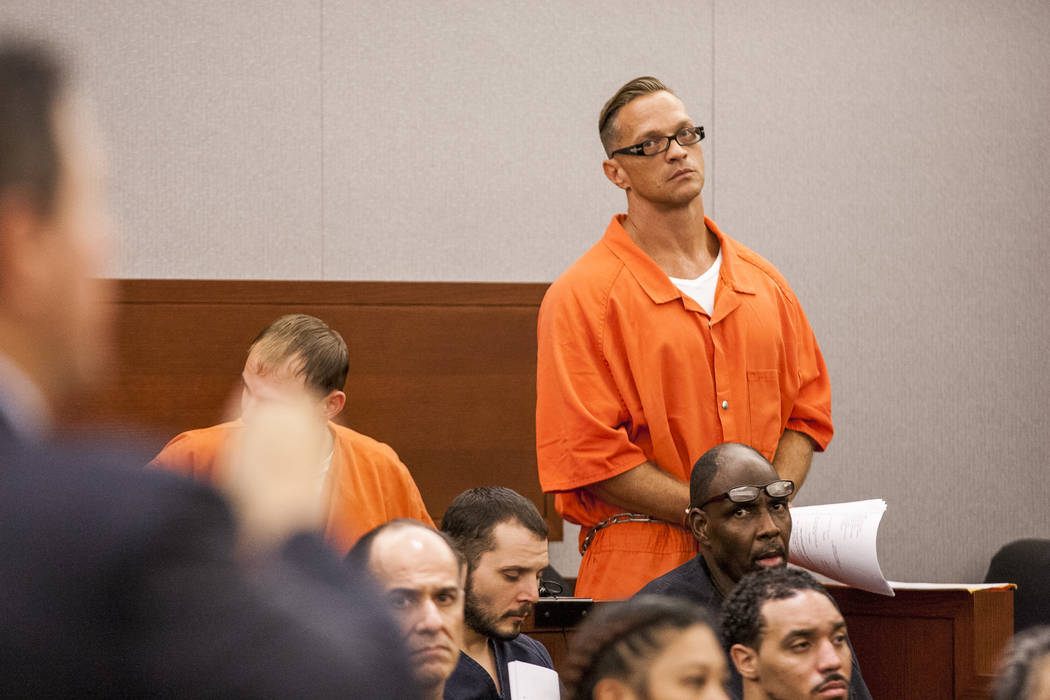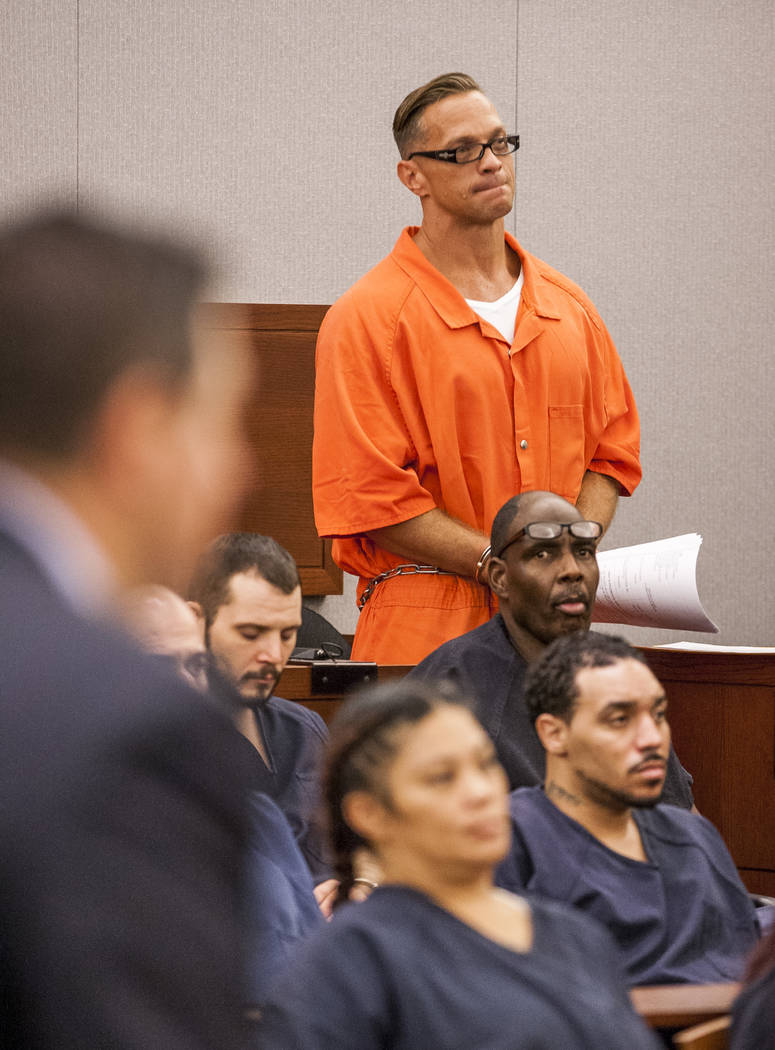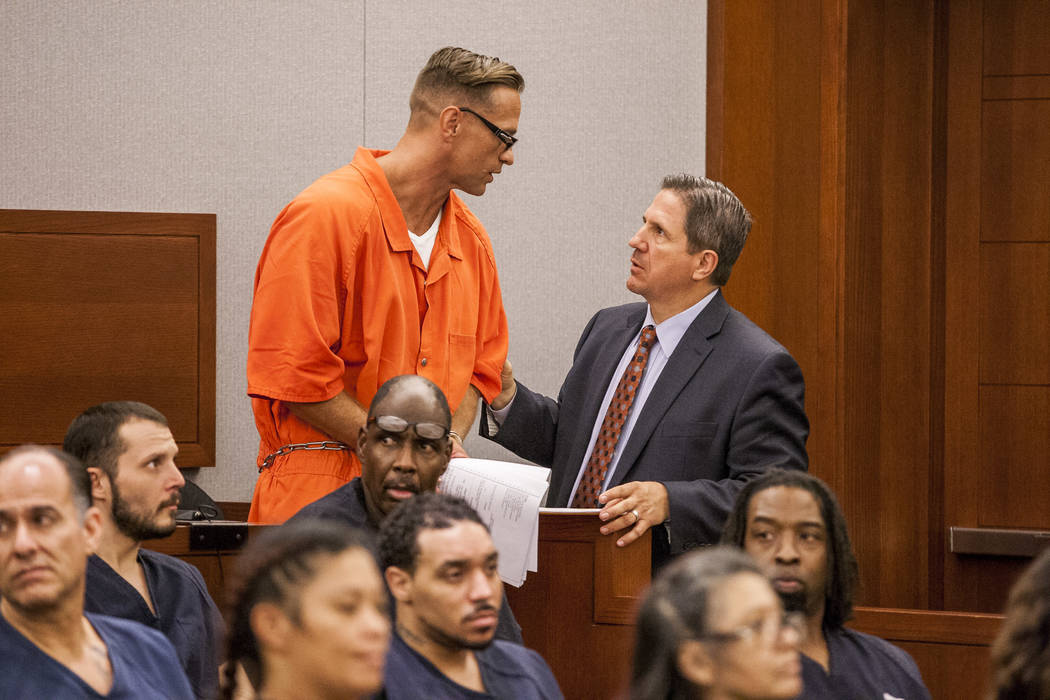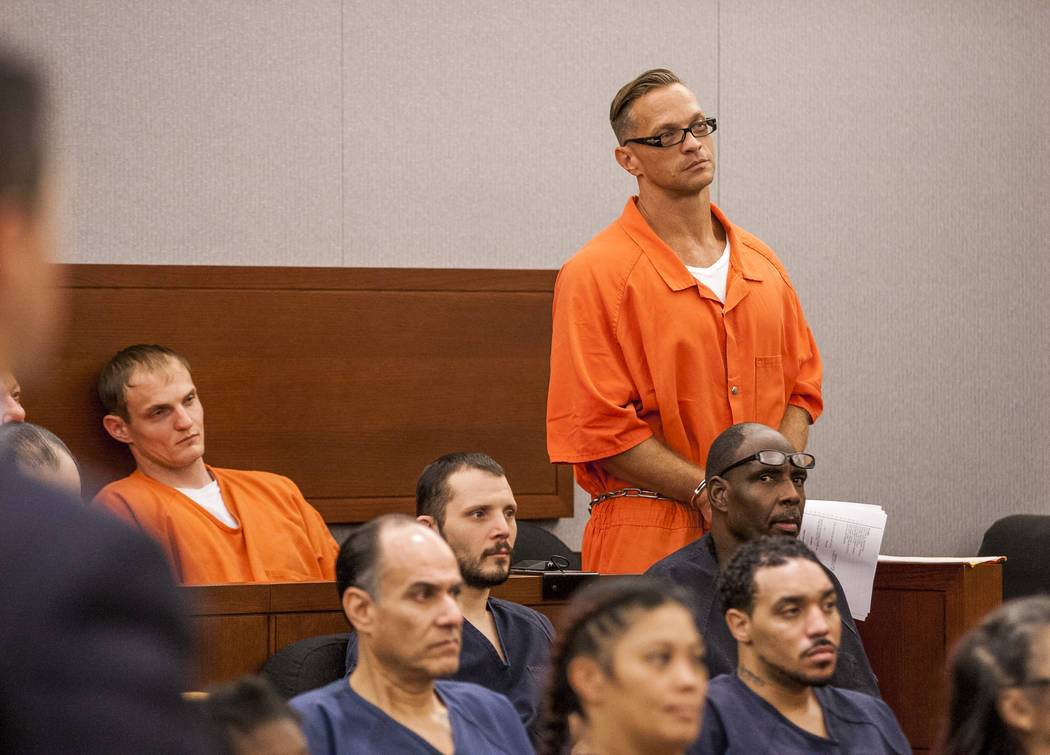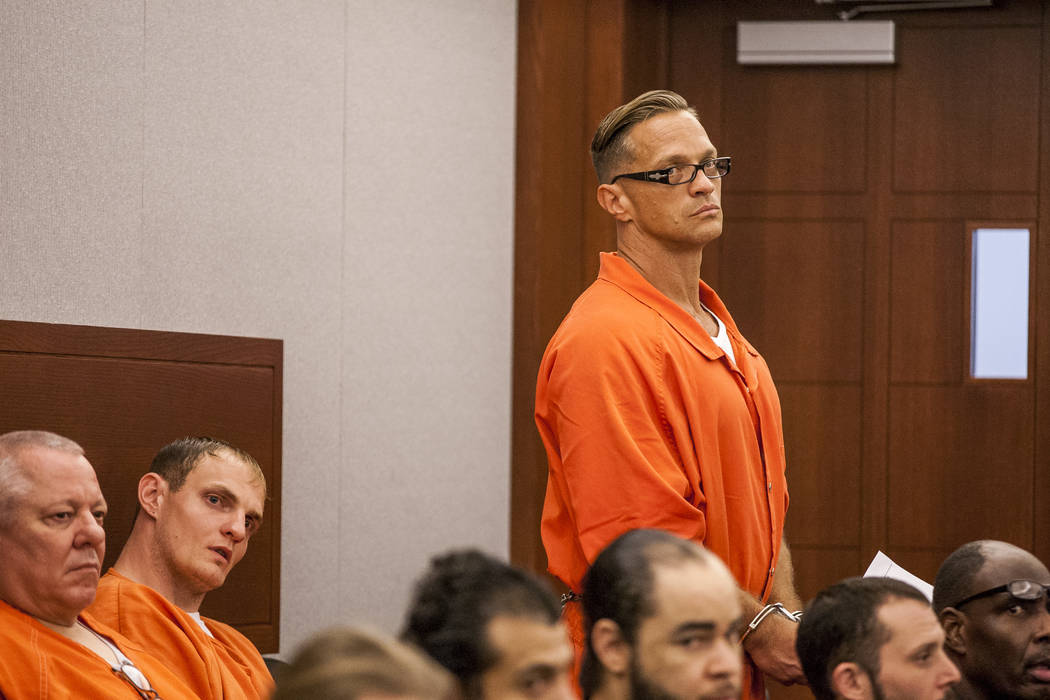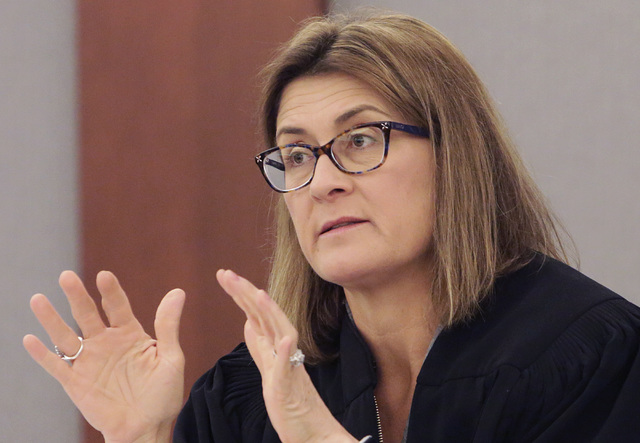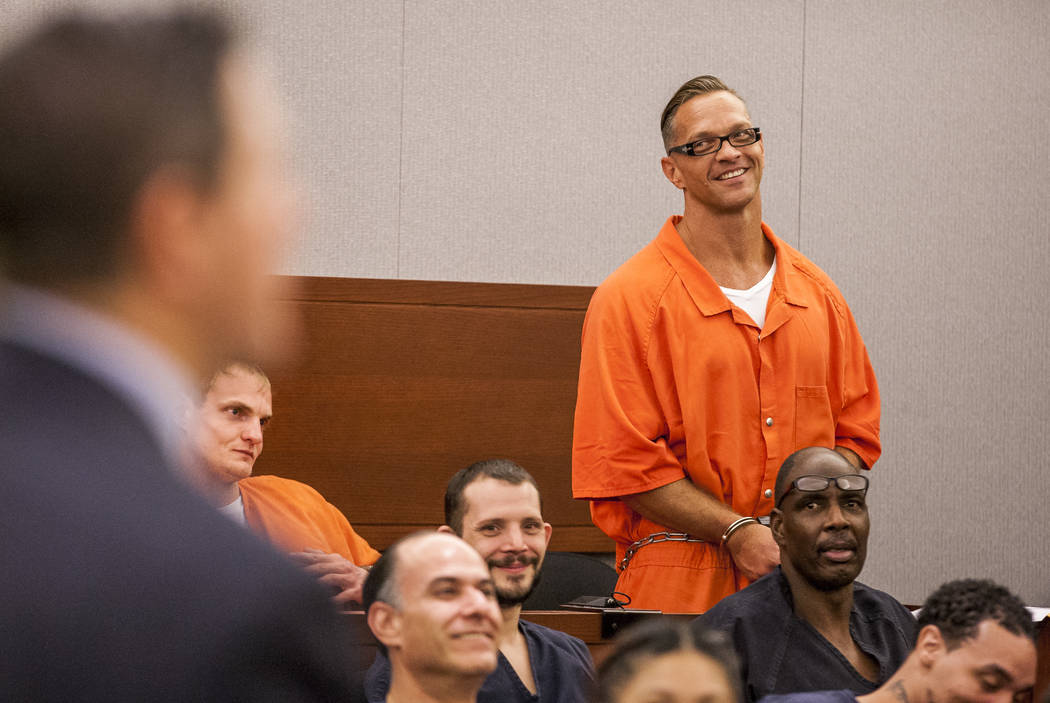Las Vegas judge grants killer his wish, orders execution
A judge on Thursday ordered the execution of Scott Dozier, securing a path to imminent death for the two-time convicted murderer who has spent the last year trying to persuade the state to kill him.
“It’s been a long time, your honor. I’m ready to go,” Dozier, 46, said during a brief court hearing. The warrant of execution, signed Thursday by Clark County District Judge Jennifer Togliatti, requires that Dozier be put to death during the week of Oct. 16.
Dozier was composed — even cheerful at times — Thursday, sporting a high-and-tight haircut and stylish glasses with wide-rimmed frames. His execution is scheduled to be the first in Nevada since 2006.
The roughly 80-day countdown triggered by Togliatti’s signature marks a legal victory for Dozier, who was sentenced to death in 2007. He used blunt statements and gallows humor to assure the judge of his desire to die, no matter how painful the process.
“Once they start, they’re going to get it done one way or another,” he said. “Ideally it will not be terrible or painful, but if it is, I’m kind of committed at that point.”
Dozier was convicted of the 2002 murder and mutilation of 22-year-old Arizona resident Jeremiah Miller, whose torso was found in a suitcase. Miller’s extremities never were recovered. The 2007 conviction followed a 2005 Arizona conviction of second-degree murder.
State law requires executions to be carried out by lethal injection. Citing cases of botched lethal injections elsewhere, Togliatti grilled Dozier before she agreed to sign the execution order.
“There’s nothing that occurred in the last year, including discussions about the drug, the efficacy of the drug … whether the drugs used in other states have problematic, perhaps painful or protracted executions?” the judge asked. “That has not dissuaded you from asking me to sign this warrant?”
“Quite frankly, your honor, all those people ended up dead, and that’s my goal here,” Dozier said.
Rejecting the advice of his attorney, Dozier agreed to waive his post-conviction rights to appeal his sentence. Those rights will be reinstated if the execution is not done as scheduled.
Access to drug cocktail
The certainty with which Dozier declared his death wish offered a sharp contrast to the mass uncertainty surrounding the state’s access to drugs used in lethal injections. Nevada’s stockpile of at least one of those drugs expired recently, and Department of Corrections officials have been unsuccessful in efforts to replace it.
“The Department says that if there’s a warrant, they can get it,” Clark County Assistant District Attorney Giancarlo Pesci told the judge. “I can’t tell you which drug or drugs.”
The Nevada DOC said in a statement that it is “seeking guidance from the Attorney General’s Office and will follow all appropriate and legal protocol to ensure state law is followed.”
The office of Attorney General Adam Laxalt referred all questions to the Department of Corrections. Gov. Brian Sandoval’s office did not provide a comment.
From what was disclosed in court, there are concerns about both use of and access to certain lethal injection drugs.
“As you know, there has been great concern about drugs not working properly. There have been cases in other states where executions really have been botched,” Pesci said. “I think it is very important to make sure that we don’t have a situation that has happened in other states.”
State law does not establish a protocol for drugs used in lethal injections, but prison officials said in 2015 they planned to use midazolam and hydromorphone to carry out future executions. They could, however, decide to use a different combination of drugs for Dozier’s execution.
Midazolam, an anti-anxiety sedative, was scrutinized following Oklahoma’s use of the drug in a botched 2014 execution that lasted 43 minutes. A divided U.S. Supreme Court later upheld the use of midazolam in lethal injections, with a razor-thin majority ruling that it did not violate Eighth Amendment protections against cruel and unusual punishment.
Pfizer, which manufactures both midazolam and hydromorphone, announced last year it would block the use of its products for executions. Nevada since has failed to secure bids from pharmaceutical companies to restock the drug. Last year, 247 requests by the state yielded zero responses.
Defense attorney Tom Ericsson told the judge he heard a television interview with Nevada Director of Prisons James Dzurenda, who said officials might seek to obtain the drug from other states.
“We don’t have a clear picture, even with this execution warrant, for exactly what the protocol is going to be for this execution and where the drugs are going to come from,” said Clark County Deputy Public Defender Scott Coffee, an expert on death penalty cases.
Dozier, however, did not seem concerned with the details of his execution that have state officials scrambling. He caused a disruption in the courtroom when he asked the judge a final question at the end of his hearing.
“Can you fix that picture?! It’s driving me crazy,” he said.
“What picture?”
“The one on the wall that’s hanging sideways,” Dozier said, pointing to a photograph angled in its frame. “Do you not notice that?”
He turned to the other people in the courtroom, gesturing as if to seek confirmation, and smiled as the laughter of defendants and spectators drowned out attorneys’ comments.
Contact Jenny Wilson at jenwilson@reviewjournal.com or 702-384-8710. Follow @jennydwilson on Twitter.



